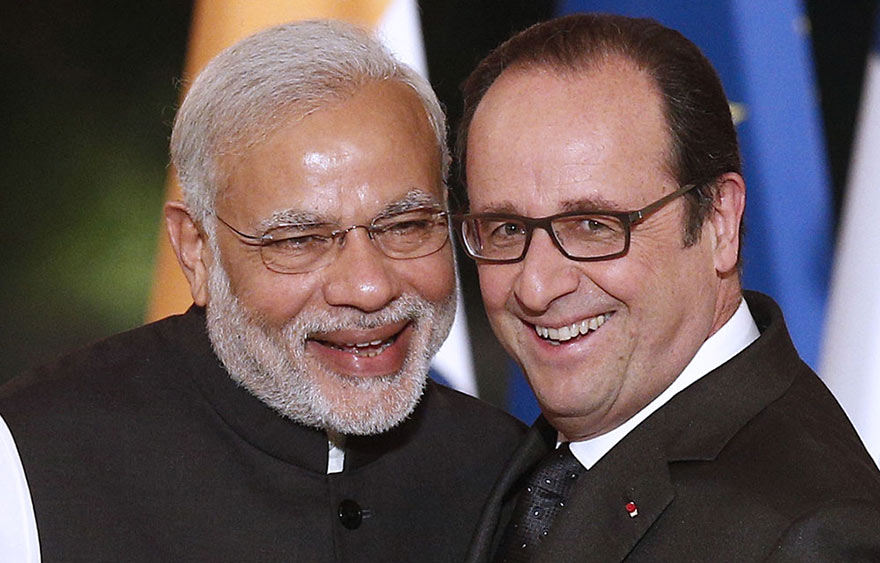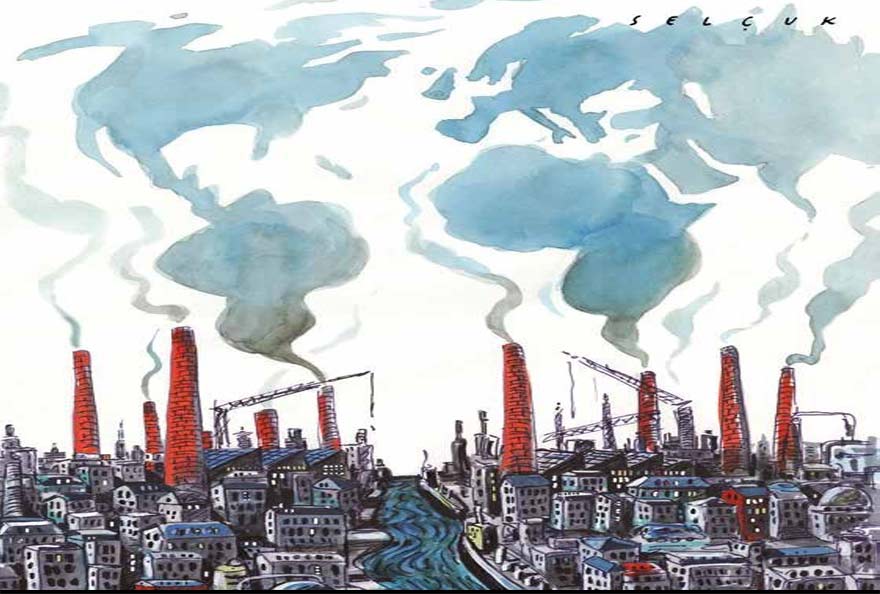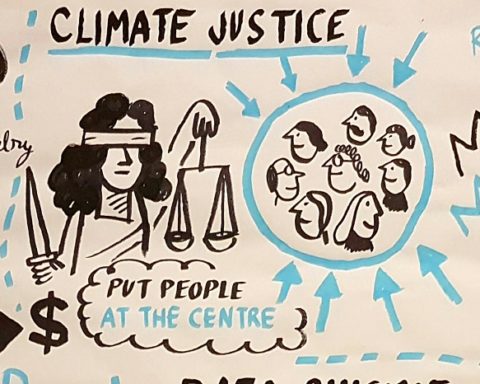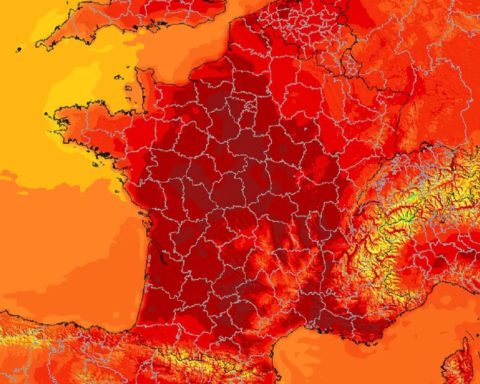READ UP‘ : Will COP21 blow the carbon bubble?
1000 billion will be invested in the development of solar energy by 2022. This is what Indian Prime Minister Narendra Modi, accompanied by François Hollande, has just stated on the first day of COP21.
This goal is made possible by the creation of the International Solar Alliance, a platform for cooperation between countries with abundant solar resources and the worlds of finance, research and business.
Chis Alliance, wanted by Prime Minister Modi and supported from the outset by the French President, is based on a simple desire: to unite the efforts of developing countries to attract investment and technology in this sector and to develop the uses of solar energy.
This Alliance will enable cooperation between industrialized countries that have technology and financing and developing countries. The participation of many Heads of State and Government and business leaders in this project illustrates the strength of this commitment.
In his opening remarks, Narendra Modi recalled that, "... In Indian tradition, the sun is the source of all energy; the sun is the soul of all beings, animate or inanimate. While fossil fuels have endangered our world, India wants to turn to solar energy. ». He points out that "the vast majority of mankind is bathed by the energy of the sun all year round. We want to make this source of energy cheaper and easier to connect.
We will build on innovation and cooperation to create investments, innovative financial mechanisms ".
It is true that more than 100 countries, located entirely or partially between the Tropics of Cancer and Capricorn, have solar potential. This is an opportunity for the international community to create a common impetus to achieve a low-carbon economy.
U.N. Secretary-General Ban Ki-moon has called on markets to direct their investments towards the sun. He said: " we need a development that is not destructive. Solar energy will give developing countries access to a free resource that will ensure their energy security and independence. ".
Present at the launch conference, Gérard Mestrallet, President of Engie, reminded the audience that of the 1,000 billion dollars needed to finance this Solar Alliance, private companies, energy companies in particular, and financial organisations will contribute 70 %. Already Areva, Enel, HSBC France and Tata Steel have joined Engie on this project. He specifies that this commitment will be kept because the financiers have understood that " a climate-related disaster will be a financial asset disaster ".
One wonders about India's sincerity in this announcement. Indeed, India is today one of the world's most polluting countries. The subcontinent is singularly dependent on coal. And all the specialists stress the fact that India will continue to rely on fossil fuels to feed its economic growth; it cannot do otherwise in the current state of its economic structure. India's dependence on coal is symptomatic of a country that is globally poor but facing growing energy needs. Jean-Joseph Boillot, expert on the Indian economy wrote : " Today, coal represents between 60 and 70 % of India's electricity mix. The sub-continent has an abundance of coal while it is forced to import 85 % of its oil and gas. The price per kilowatt of coal is also 4 to 5 times lower than that of other energies. For India, it is a question of using these resources in order to guarantee its independence and to provide cheap electricity to a poor population.
What other options might India have? "
This is why the Solar Alliance initiative should be encouraged. The Indian Prime Minister has stated that he wants to invest $90 billion in this platform from the outset. This is a big effort for the country, but one that is necessary to reach the objective that it has set and to which it committed itself for COP21: to reach 40 % of renewable energy by 2030 to supply clean energy to a population of nearly 1.5 billion people.
Gérard AyacheUP' Magazine Columnist
Login
0 Comments
Inline Feedbacks
View all comments












